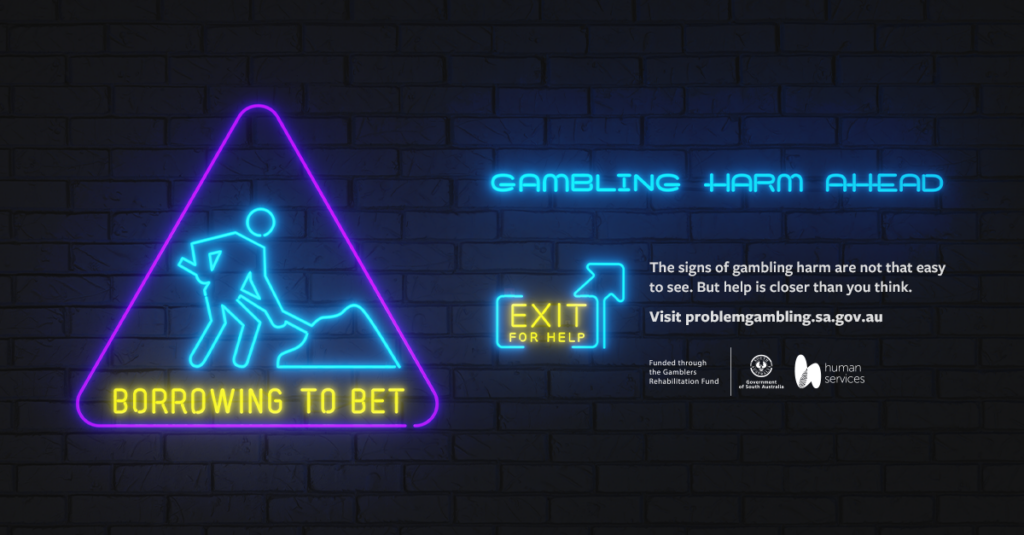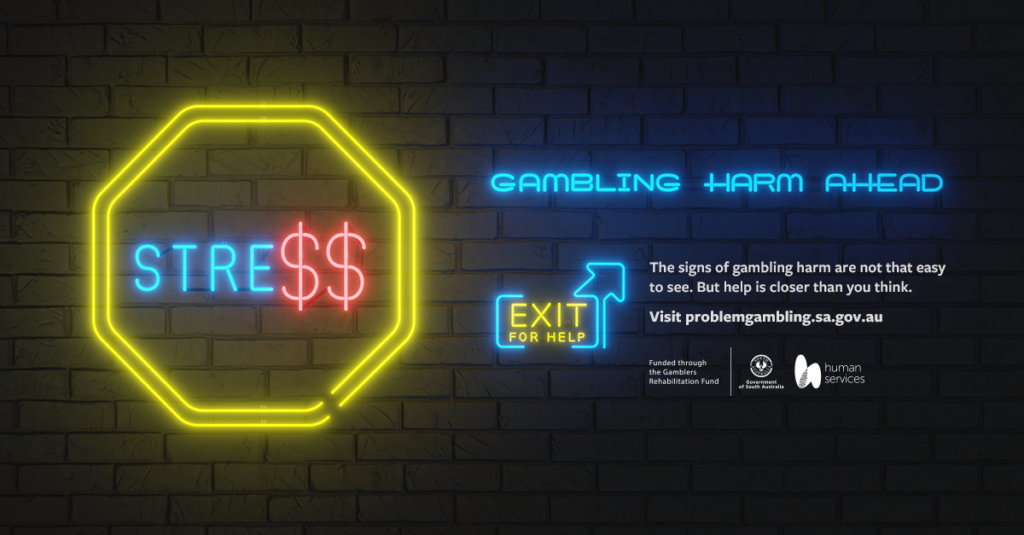The number of South Australians affected by risky gambling each year is enough to fill Adelaide Oval. And it’s an issue that really affects young people – 20 per cent of adults who gamble at risky levels start before they turn 18, and males aged 18-34 have the highest rates of gambling Australia-wide.
For many people, the first step in solving the problem is the hardest: admitting you need help.
That’s where the brave speakers from the Lived Experience in Gambling Harm (LEIGH) program come in.
What is the LEIGH program?
Through the Relationships Australia South Australia’s LEIGH program, individuals share their personal stories to raise awareness of gambling harm.
The volunteers are South Australians from all sorts of backgrounds who have successfully sought help for gambling in the past and are now sharing their stories to help others do the same.
Their stories are unique but they’re all captivating, devastating and ultimately inspiring.
The LEIGH program presentation is powerful but short – usually 5-10 minutes long. After the volunteer’s story there’s a chance to ask questions, plus information about where to get help and support.
Who is the LEIGH program for?
Everyone! The LEIGH program presentation is available to a wide range of organisations and events, from schools and community organisations to conferences and workplaces.
Gambling Harm Awareness week is 16-22 October, so there’s never been a better time to get in touch with the LEIGH program coordinator and raise awareness of gambling harm in your community.
Find out more about the program and book a speaker here, or download the brochure.
If you have your own story about gambling harm to tell, you can find out how to volunteer for the LEIGH program here.
What else is happening this week?
Glad you asked! This week the State Government has launched the Gambling Harm Ahead campaign that aims to highlight the early signs of gambling harm. Inspired by road sign iconography and stylised in bright neon colours usually associated with gambling venues, the key messages of Chasing Losses, Borrowing to Bet, Gambling Alone and Financial Stress aim to attract the audience’s attention, educate people about identifying the signs of gambling harm early and remind them that help is nearby if needed.

‘Gambling Harm Ahead’ is a digital and radio campaign that will have a strong presence on digital platforms such as Facebook, Instagram, X and YouTube as well as metro and regional radio.
Read about the State Government’s Here for the Game campaign calling out the risks of sports betting and advertising among young people here.
We chat to LEIGH speaker Jo about the new campaign, problem gambling, and the LEIGH program
What do you think of the Gambling Harm Ahead campaign?
It is fresh and relevant for today. Anyone who has a gambling issue will truly get the message.
When did you first realise there was gambling harm ahead in your own life?
When I had spent more money on the pokies than I had intended, I struggled to pay bills, buy food and fuel until next payday.
What signs do you wish you had paid attention to earlier?
Constantly thinking about gambling, feeling depressed and withdrawing from family and friends.
What did it feel like to reach out for help?
Scary at first because I felt like a failure. The shame and guilt was overbearing, but, when I did reach out, it was an absolute relief!
What do you like best about the LEIGH program and being a LEIGH speaker?
It was a form of healing when I wrote “My Story”. I began to understand that I used gambling as a coping mechanism for painful things that I hadn’t dealt with in my life. It is an opportunity for me to share my story to let others know that they are not alone. They can ask for help. Not be judged and feel validated.
What is the one thing you want others to learn from your experience?
You don’t have to go it alone. There is always hope that they can achieve a fulfilling life without gambling harm.
Do you need help right now? Phone 1800 858 858 or visit gamblinghelponline.org.au. Help is available 24 hours a day, seven days a week.


















